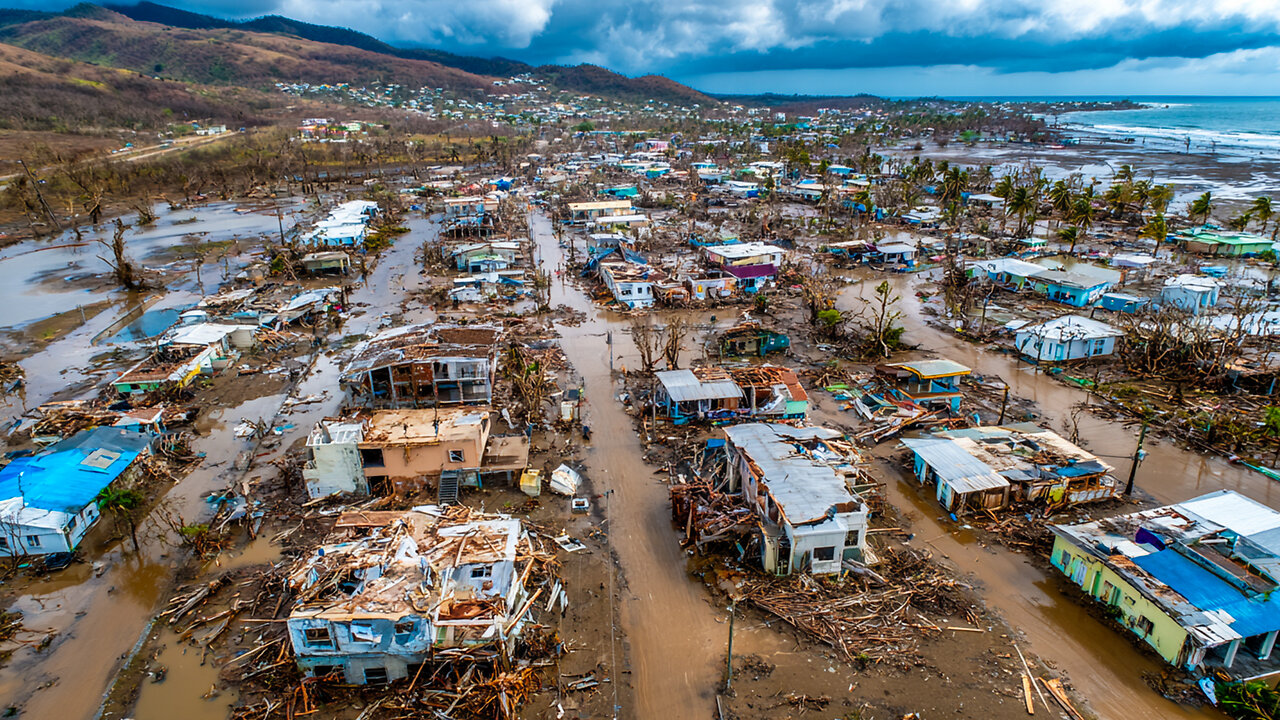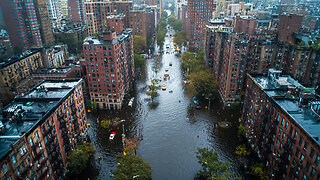Premium Only Content

Melissa: Record-Breaking Category 5 Hurricane Devastates Jamaica, Cuba and Haiti
Tropical hurricane Melissa formed off the coast of West Africa, reaching tropical storm status on October 21. As it moved westward across the Caribbean Sea, it rapidly intensified into a Category 5 hurricane, undergoing what meteorologists call rapid intensification. According to experts, Melissa’s wind speed doubled in less than 24 hours.
On the morning of October 28, as a Category 5 hurricane, Melissa made landfall on the coast of Jamaica near the town of New Hope. Wind speeds reached nearly one hundred eighty-six miles per hour, making it the strongest storm in the region’s one-hundred-seventy-four-year record.
Branches and debris were flying through the air, roofs were torn off buildings, and streets turned into raging rivers. A massive storm surge flooded the port of Black River, while Saint Elizabeth Parish, the country’s main agricultural region, was almost entirely submerged. Several families were completely cut off from the outside world — rescue teams simply couldn’t reach them.
The hurricane’s destructive eyewall also swept over Montego Bay, Jamaica’s third-largest city and its top tourist destination. Hotels were flooded; water poured from the ceilings like waterfalls. Three-quarters of the island’s population lost power and communications. In total, five hundred forty thousand customers — over seventy-seven percent of the island — were left without electricity. About fifteen thousand people took refuge in emergency shelters. The entire island of Jamaica was declared a disaster zone. Witnesses described the scene as something out of a disaster movie — palm trees snapped like matchsticks, roads washed away, and houses standing waist-deep in water. As of October 31, nineteen people had lost their lives in Jamaica.
Next, the hurricane struck Cuba. Melissa brought heavy rainfall and a powerful storm surge. More than 735,000 people were evacuated from coastal and low-lying areas. Reports described widespread flooding, roof collapses, and downed power lines.
Melissa caused chaos and casualties in other parts of the Caribbean as well — even without its eye ever making landfall. In Haiti, the hurricane unleashed torrential rain and violent wind gusts. In the city of Petit-Goâve, a river overflowed its banks, flooding homes and bridges. According to official reports, at least thirty people were killed and several remain missing as of October 31. Flooding and landslides destroyed roads, leaving many villages inaccessible to rescuers. Haitian authorities called the situation a national disaster.
In the Dominican Republic, one person was killed and another reported missing. Due to severe damage to water-supply systems, more than one million two hundred seventy thousand people were left without access to drinking water.
Hurricane Melissa became one of the most powerful hurricanes ever recorded in the Atlantic. Such extreme hurricane behavior is linked to the abnormal warming of the world’s oceans, particularly the Atlantic basin. But what’s behind this record-breaking ocean heat?
The answer may surprise you — it’s something that 99,9 percent of people on Earth use every single day. Find out the details in this video:
https://youtu.be/pvT9JkP_b4o
-
 4:23
4:23
ALLATRA
19 days agoTorrential Rain and Floods Hit New York and New Jersey — State of Emergency Declared
1001 -
 24:26
24:26
GritsGG
10 hours agoGiga-Big Duo Game w/ Mr. Poff! Most Winning Duo EVER!
1.23K -
 21:54
21:54
The Pascal Show
9 hours ago $0.05 earned$1.5 MILLION HIT?! Candace Owens Drops More Shocking Info On Her France Hit Plot THIS IS INSANE!
1.56K3 -
 LIVE
LIVE
Lofi Girl
3 years agolofi hip hop radio 📚 - beats to relax/study to
168 watching -
 1:29:13
1:29:13
ThisIsDeLaCruz
9 hours ago $2.30 earnedRunning Sound for 1.6 MILLION PEOPLE!!! Madonna In Rio
9.12K2 -
 2:18:52
2:18:52
FreshandFit
13 hours agoBlack Girl Gets Triggered After We Said THIS....
195K47 -
 1:46:40
1:46:40
Badlands Media
13 hours agoBaseless Conspiracies Ep. 160: The Kosovo Organ Harvesting Cover-Up
72.1K17 -
 2:04:16
2:04:16
Inverted World Live
10 hours agoTwo Texas Men Plotted to Invade Haiti | Ep. 146
68.9K10 -
 2:54:20
2:54:20
TimcastIRL
8 hours agoClinton Judge JUST DISMISSED James, Comey Indictment, Trump DOJ APPEALS | Timcast IRL
230K134 -
 3:01:32
3:01:32
SpartakusLIVE
6 hours agoCreator House LIVE STREAM || ASSUAGING the RAGE of viewers by streaming DEEP into the Night
33.7K1